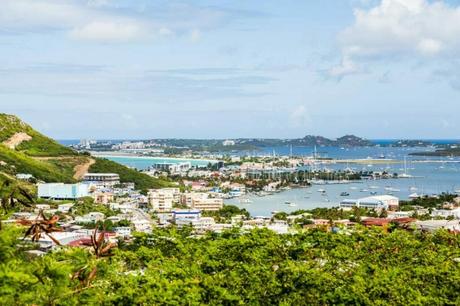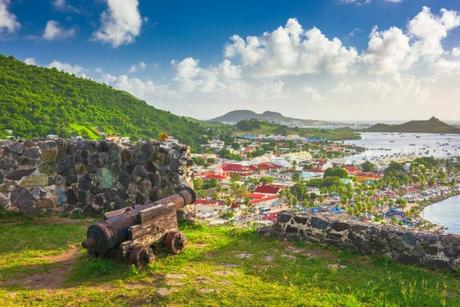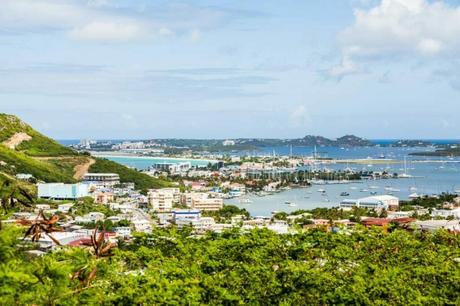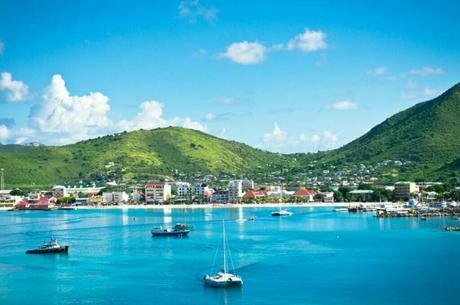Welcome to the ultimate guide on living in St. Martin, where we uncover the hidden gems and potential challenges of making this Caribbean paradise your home. As an Expat Relocation Specialist, I’m here to help you navigate the exciting journey of moving to this unique island.
St. Martin, with its dual nationality as both French and Dutch, offers a vibrant multicultural experience like no other. In this guide, we’ll delve into the pros and cons, providing you with the insights you need to make an informed decision about your future on this sun-kissed gem.
ClimateYear-round tropical weatherHurricane season challenges
Multicultural LifeDiverse culture and vibrancyCultural adjustment may be needed
Outdoor ActivitiesAbundance of outdoor opportunitiesHigher cost of living can be a drawback
Job OpportunitiesSome specialized skill prospectsCompetitive job market in certain fields
Environmental BeautyNatural beauty and landscapesEnvironmental preservation challenges
Pace of LifeRelaxed Caribbean lifestyleFast-paced options may be limited
From the picturesque beaches and endless outdoor adventures to the complexities of hurricane season and the cost of living, we’ll explore it all. So, whether you’re dreaming of sipping cocktails on pristine shores, embarking on new culinary adventures, or seeking a tranquil escape in the heart of the Caribbean, join us as we uncover what life is truly like in St. Martin.
Choosing Between French and Dutch Sides

When it comes to making the big move to St. Martin, one of the exciting choices you’ll need to make is whether you want to settle on the French side or the Dutch side of the island. Each side has its own unique charm and lifestyle, and understanding the differences can help you decide what suits you best.
The French Side
Picture yourself waking up to the sweet scent of freshly baked croissants and the sound of “Bonjour!” from your friendly neighbors. That’s the French side of St. Martin for you. It offers a quieter, more European atmosphere with its charming cafes, boutiques, and cobblestone streets. If you’re a fan of French cuisine and fine wines, you’re in for a treat. Plus, the healthcare system here is top-notch.
Pros
- European elegance and cuisine.
- Excellent healthcare facilities.
- Quieter and relaxed pace of life.
Cons
- Language barrier for non-French speakers.
- Limited nightlife compared to the Dutch side.
- Housing costs can be higher in some areas.
The Dutch Side
On the Dutch side of St. Martin, you’ll experience a more bustling and vibrant lifestyle. Imagine lively beach bars, casinos, and a wide range of water sports to keep you entertained. The Dutch side is known for its friendly and welcoming atmosphere, making it a great choice for those who enjoy socializing and a dynamic scene.
Pros
- Vibrant nightlife and entertainment options.
- English is widely spoken.
- Plenty of shopping and dining choices.
Cons
- Busier and more touristy.
- Some areas may experience more noise and traffic.
- Healthcare facilities may not be as advanced as on the French side.
Making Your Decision
Consider your lifestyle preferences, language skills, and what you value most in your day-to-day life. Many expats choose to live on one side while exploring the other, as it’s easy to cross the border. Ultimately, the choice between the French and Dutch sides of St. Martin boils down to your personal preferences and priorities.
In the end, both sides of this stunning island offer their own unique pros and cons. Whichever side you choose, you’re in for a life filled with beautiful beaches, warm weather, and a vibrant Caribbean culture. So, take your time, do your research, and get ready to embark on your exciting St. Martin adventure!
Multicultural Harmony on the Island

Imagine waking up to the delightful scent of freshly baked croissants and the warm greeting of “Bonjour!” from your neighbors. This is the essence of the French side of St. Martin, where you can immerse yourself in a quieter, European-inspired ambiance. Charming cafes, boutique shops, and cobblestone streets contribute to the French flair. If you’re a connoisseur of fine French cuisine and wine, you’re in for a treat. The healthcare facilities on this side are renowned for their excellence.
Now, picture yourself crossing the invisible border into the Dutch side of St. Martin. Here, the atmosphere transforms into a bustling and vibrant scene. You’ll find lively beach bars, bustling markets, and a myriad of water sports and entertainment options. English is the predominant language, making it easier to communicate and socialize. The Dutch side is known for its thriving nightlife, abundant shopping opportunities, and diverse dining choices.
Pros of this multicultural harmony include the opportunity to experience the best of both worlds – French elegance and Dutch dynamism. You can also enhance your language skills by learning or improving your French and English. St. Martin’s dual-nationality status means you can enjoy the benefits of both cultures without leaving the island.
However, there are some challenges to consider, including potential language barriers if you’re not proficient in French or English. Balancing the cultural differences between the French and Dutch sides may require some adjustment, and navigating two distinct legal systems can be complex.
Embrace the multicultural harmony that defines St. Martin, and remember that you’re not just moving to an island; you’re immersing yourself in a vibrant, diverse, and culturally rich way of life. With an open mind and a willingness to explore, you’ll discover the many treasures that this island has to offer. Whether you’re savoring French cuisine or enjoying the lively Dutch nightlife, St. Martin welcomes you to its multicultural paradise.
Island Architecture: Aesthetic and Practical Considerations

St. Martin’s architecture is a visual delight. Buildings often sport vibrant pastel hues that perfectly complement the tropical environment. Many homes incorporate traditional Caribbean design elements like wooden shutters, louvered windows, and spacious verandas. Beyond aesthetics, these choices blur the lines between indoor and outdoor living, bringing the island’s natural beauty inside your home.
However, St. Martin’s architecture isn’t merely about appearances. It’s a testament to resilience and safety. The island is prone to hurricanes and tropical storms, so homes are designed to withstand these natural forces. Features such as reinforced concrete structures, impact-resistant windows, and securely anchored roofs are common. These practical elements are not just about comfort but also crucial for your safety in the face of nature’s fury.
Let’s delve into some essential aspects to consider about island architecture in St. Martin:
Visual Beauty: The island’s charming and colorful architecture creates an enchanting living environment, making each day feel like a Caribbean dream.
Scenic Views: Many homes are thoughtfully positioned to capture breathtaking waterfront or hillside views, offering a constant connection to the island’s natural splendor.
Artistic Inspiration: If you have a creative spirit, the vibrant and picturesque island setting can serve as an endless source of artistic inspiration.
Maintenance Costs: The unique architecture, while stunning, may require more frequent maintenance to preserve its visual appeal and structural integrity. Be prepared for ongoing upkeep.
Natural Hazards: Coastal living, while alluring, does come with the risk of hurricanes. Consider insurance coverage and disaster preparedness as integral parts of island life.
Property Values: The architectural beauty often translates into relatively higher property values in certain areas.
As you embark on your journey to live in St. Martin, it’s crucial to recognize the significance of island architecture. It’s not just about residing in a beautiful place; it’s about adapting to and respecting the natural forces that shape this tropical paradise. When selecting your island home, keeping these aesthetic and practical considerations in mind will empower you to make a well-informed decision that aligns with your vision of living in St. Martin.
A Vibrant Lifestyle: Traditions and Celebrations

What sets St. Martin apart is its unique multicultural harmony, beautifully woven into the fabric of daily life. The island celebrates both French and Dutch heritages, and you’ll soon discover a delightful blend of customs.
On the French side, traditional feasts like “La Galette des Rois” (King Cake) during Epiphany bring communities together. The Dutch side, on the other hand, bursts into a whirlwind of color and music during Carnival season, with lively parades and street parties that last for weeks.
A highlight of the year is the Carnival Grand Parade. This extravaganza is a kaleidoscope of elaborate costumes, infectious rhythms, and a contagious spirit of joy. It’s not just an event; it’s an invitation to connect with the local community, forge new friendships, and truly become part of the island’s heart and soul.
Now, let’s talk about the pros and cons of this vibrant island lifestyle.
Living here, you’ll have the chance to immerse yourself in diverse traditions, learn about different customs, and experience the warmth of multiculturalism. Festivals and celebrations become opportunities to forge strong community bonds, where locals and expats unite in celebration. You’ll find an endless list of exciting experiences, from music festivals to culinary events, that will fill your days with unforgettable memories.
However, it’s essential to consider a few challenges. Some celebrations can be quite noisy, especially during Carnival season. If you prefer quieter surroundings, you might need to adapt to the lively atmosphere. Also, while the influx of tourists boosts the local economy, it can lead to crowded venues during major events. Lastly, adjusting to different customs may require an open mind and a willingness to embrace new traditions.
St. Martin’s traditions and celebrations are an integral part of the island’s charm. Finding your balance between immersing yourself in the festivities and seeking moments of tranquility is key. Whether you’re dancing in Carnival parades, savoring local flavors, or simply soaking in the laid-back island vibe, St. Martin offers a vibrant and culturally rich lifestyle that will leave an indelible mark on your expat experience.
Financial Realities: The Cost of Living

Let’s dive into one of the crucial aspects of life in St. Martin—the financial realities. Living in this stunning Caribbean destination comes with its own set of costs and considerations. So, grab a seat, and let’s break it down.
St. Martin Cost of Living Pros
First, the good news: St. Martin offers a more affordable cost of living compared to many Western countries. While prices can vary depending on your lifestyle, housing, and dining choices, you can generally enjoy a comfortable life without breaking the bank.
The absence of income tax is a significant advantage. You get to keep more of what you earn, which can make a noticeable difference in your monthly budget. Plus, the island’s duty-free status means you can often find reasonably priced goods and products.
St. Martin Cost of Living Cons
Now, for the flip side. St. Martin’s cost of living isn’t rock-bottom cheap. Imported goods, like electronics and some groceries, can be more expensive due to shipping costs. Housing in certain areas, especially those with spectacular views or proximity to the beach, can be on the higher side.
Utilities, including electricity and water, might cost more than you’re used to, given the island’s reliance on imports. And speaking of imports, dining out frequently can add up quickly. While you’ll find delicious local cuisine that won’t break the bank, dining at upscale restaurants can be quite pricey.
Practical Tips
Here are a few practical tips to help you navigate the financial landscape of living in St. Martin:
Budget Wisely: Start with a clear budget that outlines your expected income and expenses. This will help you manage your finances effectively.
Explore Local Markets: Discover the local markets where you can find fresh produce and other essentials at more affordable prices.
Cook at Home: Balance dining out with cooking at home to save money. Fresh seafood and local ingredients can make for delightful home-cooked meals.
Compare Housing Options: Consider your housing options carefully. While beachfront villas are tempting, more budget-friendly choices are available.
Understand Utility Costs: Be mindful of your utility usage to keep costs in check. Invest in energy-efficient appliances and use water wisely.
Living in St. Martin offers a financially manageable lifestyle with the right planning and choices. By understanding the cost of living pros and cons and implementing smart financial strategies, you can make the most of your island adventure without breaking the bank. So, prepare your budget, explore local markets, and savor the beauty of St. Martin without financial worries holding you back.
Ensuring Safety and Security

One of the significant advantages of living in St. Martin is its relatively low crime rate, especially when compared to many urban areas in other countries. Violent crimes are rare, and the general atmosphere is considered safe. The island’s thriving tourism industry contributes to this safety, as it brings with it a visible police presence and a concerted effort to maintain security.
Additionally, St. Martin boasts high-quality healthcare facilities. You’ll find well-equipped hospitals and clinics, staffed by medical professionals who are often proficient in English and French. This ensures that you’ll have access to excellent healthcare services, providing peace of mind for you and your family.
While St. Martin is generally a safe place to live, it’s essential to be aware of some challenges. Petty crimes like theft and burglary can occur, so it’s advisable to take standard precautions like locking doors and securing valuable items. Rental property scams are another concern, making it crucial to work with reputable real estate agents and thoroughly research your housing options.
Natural disasters, particularly hurricanes, are a consideration. The island is susceptible to these events, so having a well-thought-out plan in place, including knowing evacuation routes and maintaining emergency supplies, is essential.
Safety and security on St. Martin are generally favorable, but it’s wise to remain vigilant, as you would in any location. With proper planning, situational awareness, and prudent precautions, you can relish the beauty and serenity of this Caribbean paradise while ensuring your safety and security. So, embrace your new adventure, stay well-informed, and create a safe and secure environment for your life on the island.
Educational Opportunities for Families

St. Martin provides a range of educational opportunities for families. On the French side of the island, you’ll find schools that follow the French curriculum, both public and private, offering a high-quality education. Many of these schools place a strong emphasis on language skills, giving your children the chance to become bilingual in French and English.
On the Dutch side of the island, you’ll also find a selection of schools, both public and private, that adhere to Dutch educational standards. Many of these schools hold international accreditation, ensuring your children receive a globally recognized education.
While St. Martin offers excellent educational opportunities, there are some considerations to keep in mind. First, the availability of schools may be limited in certain areas, potentially resulting in longer commutes for your children. Additionally, competition for spots in top schools can be fierce, so it’s advisable to plan ahead and secure enrollments early.
Another factor to bear in mind is the cost of private education. While generally more affordable than in many Western countries, it can still be a significant financial commitment for families. Make sure to include tuition fees, uniforms, and school supplies in your budget.
Here are some practical tips to help you navigate the educational landscape for your family in St. Martin.
Research Schools: Start by researching the schools available on the island. Explore their curricula, language of instruction, and accreditation.
Early Enrollment: Whenever possible, enroll your children early, especially if you have specific schools in mind. Early enrollment can increase your chances of securing a spot.
Budget Wisely: Plan your budget carefully to accommodate educational expenses. Consider both tuition fees and the cost of living on the island.
Language Skills: Encourage your children to learn either French or Dutch, depending on the side of the island you choose. Proficiency in these languages can be a valuable asset in their education and daily life.
St. Martin offers diverse educational opportunities for families, with both French and Dutch educational systems available. While challenges like school availability and tuition costs exist, thorough planning and research can help you find the right educational path for your children.
Healthcare Access and Quality

St. Martin offers a relatively robust healthcare system with several modern hospitals and clinics. On the French side of the island, healthcare services align with French standards, ensuring a high level of care. These French hospitals are well-equipped, staffed by proficient medical professionals, many of whom are fluent in both English and French. This linguistic accessibility can significantly ease communication for expatriates.
On the Dutch side of St. Martin, you’ll find well-regarded medical facilities, including the notable St. Maarten Medical Center. Many of these institutions hold international accreditation, providing residents and visitors with confidence in the quality of care they can receive. This means that while living in St. Martin, you’ll have access to healthcare that meets international standards.
However, it’s important to be aware of certain considerations. Healthcare costs on the island can be relatively high, particularly for specialized treatments or procedures. As an expatriate, it’s strongly advised to secure comprehensive health insurance that covers medical expenses within St. Martin and includes provisions for potential medical evacuations if necessary. This insurance is a safeguard for your financial and physical well-being.
Another aspect to consider is the potential limitation in specialized medical services. While the island offers general medical services, specific treatments or consultations may require travel to neighboring islands or even back to your home country. This can present logistical challenges, so it’s wise to plan accordingly.
To ensure that you and your family receive the best possible healthcare while living in St. Martin, here are some practical tips to keep in mind. Prioritize obtaining comprehensive health insurance that caters to your medical needs on the island. Include provisions for potential medical evacuations if required.
Regularly schedule routine check-ups and health screenings to detect and address any potential health issues early, promoting your overall well-being. Familiarize yourself with the location of the nearest hospital or clinic and maintain a readily accessible list of emergency contact numbers.
If you rely on specific medications, ensure a consistent supply and engage with local pharmacies to understand medication availability. Lastly, stay updated on local health advisories, disease outbreaks, or any other health-related news that may affect you.
St. Martin offers a healthcare system that adheres to international standards, providing residents with access to quality medical care. While healthcare costs and potential limitations in specialized services should be taken into account, proactive measures such as comprehensive health insurance and routine health check-ups can help safeguard your health and well-being as you embrace life on this beautiful Caribbean island.
Employment and Economic Prospects

Now, let’s explore one of the most crucial aspects of relocating to St. Martin – employment and economic opportunities. Understanding the job market and economic landscape is vital to ensuring a stable and fulfilling life on the island.
Employment Opportunities Pros
St. Martin offers a diverse range of employment opportunities. The island’s economy thrives on tourism, providing a multitude of jobs in hospitality, restaurants, and retail. If you have experience in these sectors, you’ll find ample job openings.
Moreover, St. Martin’s status as a duty-free port creates opportunities in the retail and trade sectors. If you’re an entrepreneur or have a business idea, the island’s tax incentives and tourist influx can be advantageous.
For those with specialized skills in areas such as healthcare, education, or information technology, there’s a demand for qualified professionals. Bilingualism, particularly in French and English, can be a valuable asset in securing employment.
Employment Opportunities Cons
While St. Martin offers promising employment prospects, it’s essential to consider certain challenges. The competition for jobs, especially in the tourism industry, can be fierce during peak seasons. It’s advisable to start your job search well in advance and network within your chosen field.
Another aspect to keep in mind is that salaries on the island can be lower than in some Western countries, even for highly skilled positions. Therefore, budgeting and financial planning are crucial aspects of expat life in St. Martin.
Practical Tips
Here are some practical tips to navigate the employment landscape in St. Martin:
Job Search: Begin your job search early, and consider reaching out to potential employers or networking through social media platforms like LinkedIn.
Budgeting: Carefully assess your financial needs and create a budget that accounts for potential variations in income compared to your home country.
Language Skills: Improve your language skills, especially in French and English, as bilingualism can open doors to a broader range of job opportunities.
Entrepreneurship: If you’re an entrepreneur, research the island’s business regulations and explore opportunities in the duty-free trade and tourism sectors.
Residency Status: Ensure you have the necessary work permits and residency status to legally work on the island.
St. Martin presents a promising job market with a wide array of opportunities, particularly in tourism, trade, and specialized professions. However, it’s essential to be proactive, financially prepared, and equipped with the right language skills to make the most of these prospects.
Climate and Environmental Considerations

St. Martin boasts a tropical paradise climate that attracts many newcomers. With warm temperatures year-round, this island is a haven for beach enthusiasts and outdoor lovers. The constant sunshine, along with gentle trade winds, creates an inviting atmosphere for various outdoor activities, from swimming and snorkeling to hiking and picnics. This consistent climate means you can enjoy the beauty of alfresco dining and beach outings throughout the year.
St. Martin’s natural beauty is another significant advantage. The island is adorned with pristine beaches, vibrant coral reefs, and lush rainforests. Whether you’re an avid nature lover or just seeking a peaceful escape, St. Martin provides countless opportunities for outdoor exploration and relaxation in a breathtaking environment.
However, it’s essential to be aware of some considerations. The Caribbean hurricane season, which typically runs from June to November, can bring unpredictable and sometimes severe weather. It’s crucial to be prepared for the possibility of hurricanes, including securing your property and having a well-thought-out emergency plan in place.
Environmental preservation is a growing concern on the island due to increased development and tourism. While efforts are being made to address these issues, it’s important to be mindful of your environmental impact. Engaging in sustainable practices, such as reducing plastic waste, conserving water, and supporting eco-friendly initiatives, can help protect the island’s natural beauty for generations to come.
To make the most of the climate and environmental considerations in St. Martin, here are some practical tips. During hurricane season, stay informed about weather forecasts and ensure you have an emergency kit ready. Investing in hurricane shutters or impact-resistant windows can help protect your home.
Embrace sustainable practices by reducing plastic use, conserving water, and supporting eco-friendly initiatives on the island. Engage in outdoor activities, taking advantage of the pleasant climate by exploring the natural wonders of St. Martin. Lastly, savor the island’s fresh and locally sourced cuisine, enjoying delicious Caribbean produce and seafood while reducing your carbon footprint.
Conclusion: Living in St. Martin Pros and Cons

In conclusion, St. Martin is a captivating destination with a lot to offer to those considering the prospect of living in this Caribbean paradise. As we’ve explored the pros and cons throughout this guide, it’s clear that St. Martin’s lush landscapes, warm climate, and vibrant multicultural atmosphere can provide a truly enriching and fulfilling experience for expats.
However, it’s essential to approach this journey with careful consideration. The challenges, such as hurricane season and the relatively higher cost of living, should not be underestimated. Making an informed decision about relocating to St. Martin involves weighing these factors against the island’s undeniable allure.
Ultimately, whether you’re drawn to the stunning beaches, the diverse culinary scene, or the opportunity to embrace a unique blend of cultures, St. Martin offers a lifestyle that can be both exciting and rewarding. By staying informed and prepared, you can embark on this adventure with confidence, knowing that you’re ready to make the most of the pros and navigate the cons, ensuring a fulfilling life on this sun-soaked gem of the Caribbean.
FAQ

Is Saint Martin a good place to live?
Saint Martin offers a unique and appealing lifestyle with its tropical climate, stunning natural beauty, and a rich blend of cultures. Living here provides opportunities for outdoor activities and exploration of pristine beaches. However, it’s essential to consider factors like the hurricane season and the cost of living.
What is it like living in St. Martin?
Living in St. Martin means enjoying a year-round tropical paradise with warm weather and diverse outdoor activities. The island’s multicultural atmosphere adds richness to daily life. Nevertheless, residents should be prepared for hurricane season’s potential challenges and budget for the island’s relatively higher cost of living.
Is it expensive to live on St. Maarten?
Living on St. Maarten can be relatively expensive, primarily due to its reliance on imports and the tourism industry. Costs for accommodation, groceries, and dining out can be higher than in many Western countries. However, some find the vibrant lifestyle and natural beauty of the island worth the investment.

